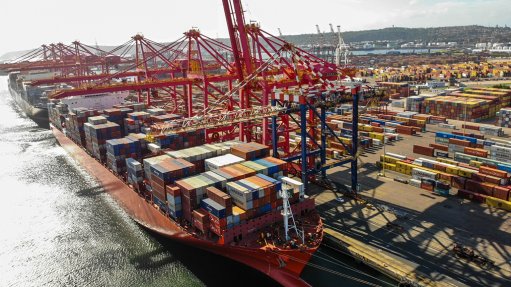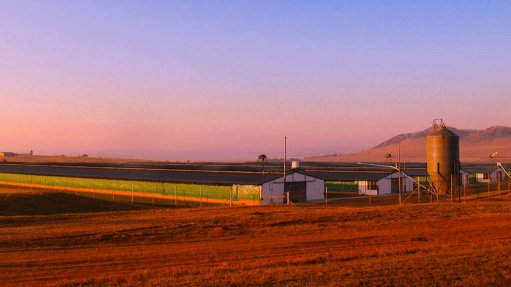Buildings, construction sector requires two-pronged approach to decarbonise – report
South Africa’s buildings and construction sector, which includes the operation of residential and commercial buildings, in addition to construction, accounts for about 7% of South Africa’s direct emissions.
To achieve net zero, the sector will need to decarbonise. However, the sector also faces the dual challenges of ensuring physical resilience, as South Africa is forecasted to be one of the region’s most severely impacted by the effects of climate change; and addressing severe housing inequality, with a shortfall of about 2.1-million homes and unequal access to public infrastructure such as water and sanitation.
This is according to the ‘Decarbonising South Africa’s Buildings and Construction Sector’ report, the final report from the Climate Pathways and Just Transition Project run by the National Business Initiative, in partnership with Business Unity South Africa and Boston Consulting Group.
The series of reports was compiled to establish a fact base on what it would take for the South African economy to transition to net zero in a just manner.
The report finds that decarbonising the buildings and construction sector requires a two-pronged approach.
Firstly, it calls for demand reduction through improved spatial planning and reduced use of emissions-intensive materials, notably steel and cement.
Secondly, there are supply-side measures such as a shift away from fossil fuel-based combustion for space and water heating, and cooking, via renewable energy-based electrification, as well as energy efficiency levers (for example, increased building insulation).
Spatial planning, in particular, will be critical, given its relevance to both the buildings and construction sector and the wider national decarbonisation and just transition efforts, the report states.
The authors note that better planning leads to a reduction in building material demand, and a reduction in the movement of goods and people and, therefore, energy consumption.
It is also said to have a major impact on driving economic inclusion through reduced transport costs, reduced commuting time and better social integration for all South Africans.
Moreover, given that the buildings and construction sector accounts for about 90% of local cement and 50% of local steel demand, it could catalyse decarbonisation across adjacent industries by creating a ‘demand-pull’ for material reuse and the use of lower-carbon-intensity materials in construction, the report points out.
In this decarbonisation ‘pathway’, South Africa’s construction demand could double owing to the construction boom to close the housing gap and realise increased infrastructure demand as the economy transitions to net zero.
This creates an opportunity for job creation, potentially generating 800 000 to 1.4-million new jobs by 2050, nearly doubling the number of jobs currently provided by the sector, while also driving growth in adjacent sectors such as heavy manufacturing and power, the report outlines.
Driving the decarbonisation and climate resilience of South Africa’s buildings and construction sector, while ensuring that housing and construction remain affordable will not be easy and will take a nationally coordinated effort combined with integrated policy and regulatory design, the report says.
This includes introducing more stringent building efficiency standards that can be extended to existing buildings to accelerate adoption, leveraging development finance to overcome the high upfront capital requirements for many decarbonisation initiatives and developing new city planning and building design approaches to achieve increased density and zoning for efficient cities (among other actions as outlined in the report).
It will also require a significant amount of capital to be mobilised, estimated at between R263-billion and R285-billion by 2050.
Most importantly, however, addressing this challenge will require a high degree of collaboration across industries and all spheres of society to make a just transition to net zero a reality, the report states.
Comments
Press Office
Announcements
What's On
Subscribe to improve your user experience...
Option 1 (equivalent of R125 a month):
Receive a weekly copy of Creamer Media's Engineering News & Mining Weekly magazine
(print copy for those in South Africa and e-magazine for those outside of South Africa)
Receive daily email newsletters
Access to full search results
Access archive of magazine back copies
Access to Projects in Progress
Access to ONE Research Report of your choice in PDF format
Option 2 (equivalent of R375 a month):
All benefits from Option 1
PLUS
Access to Creamer Media's Research Channel Africa for ALL Research Reports, in PDF format, on various industrial and mining sectors
including Electricity; Water; Energy Transition; Hydrogen; Roads, Rail and Ports; Coal; Gold; Platinum; Battery Metals; etc.
Already a subscriber?
Forgotten your password?
Receive weekly copy of Creamer Media's Engineering News & Mining Weekly magazine (print copy for those in South Africa and e-magazine for those outside of South Africa)
➕
Recieve daily email newsletters
➕
Access to full search results
➕
Access archive of magazine back copies
➕
Access to Projects in Progress
➕
Access to ONE Research Report of your choice in PDF format
RESEARCH CHANNEL AFRICA
R4500 (equivalent of R375 a month)
SUBSCRIBEAll benefits from Option 1
➕
Access to Creamer Media's Research Channel Africa for ALL Research Reports on various industrial and mining sectors, in PDF format, including on:
Electricity
➕
Water
➕
Energy Transition
➕
Hydrogen
➕
Roads, Rail and Ports
➕
Coal
➕
Gold
➕
Platinum
➕
Battery Metals
➕
etc.
Receive all benefits from Option 1 or Option 2 delivered to numerous people at your company
➕
Multiple User names and Passwords for simultaneous log-ins
➕
Intranet integration access to all in your organisation


















